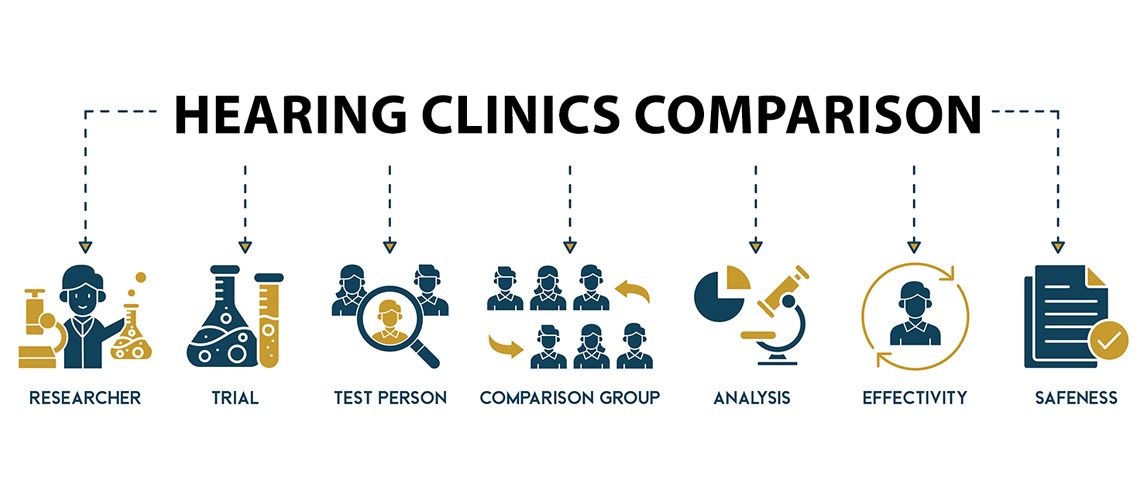When it comes to choosing a hearing clinic, you’re often presented with two main options: the larger, well-known companies or the smaller private providers. With big companies out there, it’s tempting to go for the well-known options.
But don’t dismiss the smaller private providers just yet! Both have their merits, so let’s explore them to help you make an informed decision.
Recognizing the Players in the Field:
Big names such as Oticon, Phonak, and ReSound have a strong presence with numerous outlets in many areas. In short, they are the main players on the field. They’re familiar because of their vast reach and marketing strategies.
On the flip side, smaller private providers may not have as many outlets, but they can offer a more tailored and personal service.
The Power of Personal Recommendations: Word of Mouth
There’s nothing quite like a trusted recommendation from someone you know. If your friend or even a family member has had a good experience with a clinic, it’s worth considering. But let’s look a bit deeper:
- Who was the clinician they consulted with?
- What type and brand of hearing aid were they recommended? Remember, what works for one person may not work for another.
- Was there a hard sell or did they feel comfortable with the consultation process?
These questions enable you to make the best decision for your hearing health needs.
Practical Considerations: Appointments and Accessibility
We all know how frustrating it can be to wait for ages for an appointment. Some clinics are so busy that you’ll feel like you’ve aged a decade by the time your turn arrives —we don’t want that.
Several factors come into play here:
- Wait times: While more prominent clinics might be busier, you should typically get an appointment within a couple of weeks.
- Convenience: Does the clinic offer flexible hours, weekend slots, or even virtual consultations?
- Location: Is the clinic easy to reach? Consider parking options and, if you have mobility concerns, ensure the facility can accommodate them.
These factors not only provide you with valuable insight into selecting a clinic, but they are also vital in ensuring that you get the care you need in a timely manner.
Cost Matters: What Are You Paying For?

When choosing a hearing clinic, it’s important to consider what services are included in the cost. You don’t want to be surprised with hidden fees or unexpected expenses.
Ensure you know:
- The exact cost of the hearing aid.
- Any fees associated with the clinician’s time and how many appointments this covers.
- Details about the warranty. Are they included in the initial cost or is it an additional expense?
- And let’s not forget about batteries and repairs. Are these included or do you have to pay extra? It’s always good to know in advance, so you’re not caught off guard.
Remember, transparency is key when it comes to cost breakdowns. If a clinic isn’t transparent about it, it could be a sign to look elsewhere.
Clinic Reputation and Customer Reviews:
Before committing to a hearing clinic, do some research. Look for online reviews, testimonials, and ratings. This will give you an idea of the clinic’s reputation and the experiences of other patients.
Keep in mind that not every review might be accurate, but the overall feedback will give you a good sense of what to expect.
The Bottom Line: Choosing What’s Right for You

While big companies might offer a sense of familiarity, private providers often bring a personalized touch. Both have their advantages. The most important thing is to find a provider that matches your preferences and needs.
In the end, whether you opt for a big name or a local provider, the goal is clear: quality care that suits your specific needs. Remember, your hearing health deserves the best care, and the right clinic will ensure just that.




